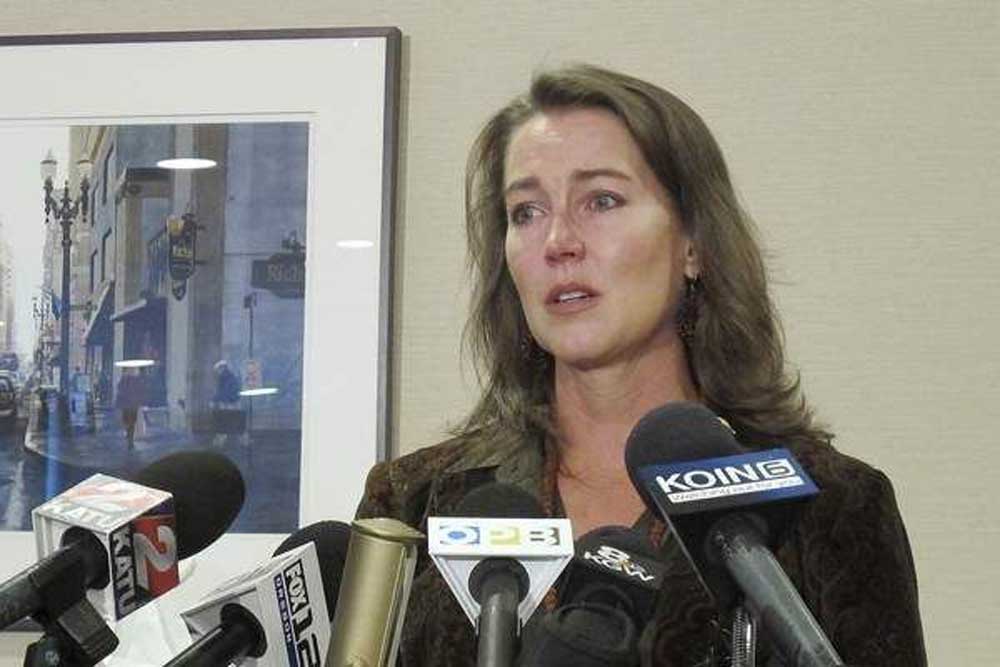Expert: Bankruptcy won’t spare Hayes from judgment, fines
Published 1:22 pm Monday, June 11, 2018

- Legal experts say former first lady Cylvia Hayes can't use a bankruptcy filing to escape paying court-ordered judgments or fines for ethics violations.
Filing for bankruptcy wouldn’t protect former first lady Cylvia Hays from paying a $125,000 judgment to The Oregonian/OregonLive or up to $110,000 in fines for ethics violations,according to an expert in bankruptcy law.
A Marion County Circuit Court judge ruled in June 2016 that Hayes owed The Oregonian $125,000 to cover the attorney fees the news organization incurred from challenging a lawsuit Hayes filed seeking to keep her emails from when she was first lady secret. The Oregonian recorded a lien on her house in Bend earlier this year to recover the money.
Trending
Last week, Hayes’s lawyer indicated that Hayes plans to file bankruptcy in part to avoid paying the debt, The Oregonian first reported Wednesday, June 6.
She also faces up to $110,000 in fines for 22 counts of violating state ethics laws, largely by using her public position as first lady to win a paid fellowship and several contracts for her environmental consulting firm between 2011 and 2013.
Hayes wrote in a Facebook post Thursday, June 8, that she planned to file bankruptcy to “protect my home from the Oregonian.”
She also announced that she had taken steps to dismiss her appeal of the judgment in order to pursue bankruptcy.
“And so, I am hoping to close the door on a long and draining ordeal,” she wrote. “I am ready to have all of my energy moving forward focused on positive work, rather than mired down in a legal quagmire.”
Legal experts say that filing for bankruptcy likely wouldn’t wipe out the judgment or any fines she might incur for ethics violations.
Trending
She is currently in negotiations with the Oregon Government Ethics Commission to settle the ethics case, The Oregonian reported.
A judgment debt is “non-dischargeable” if the debtor is “compelled by court order to pay an opposing party’s legal fees,” said Samir Parikh, professor at Lewis & Clark Law School and editor in chief of Bloomberg Law Bankruptcy Treatise.
Under federal law, fines and penalties payable for the benefit of a governmental unit for an event that occurred more than three years ago also are not dischargeable in bankruptcy, Parikh wrote in an email to the Pamplin/EO Capital Bureau.
In bankruptcy, the underlying lien would stay attached to the property, said Brian Wheeler, a Portland bankruptcy lawyer. The only way a lien can be removed is if the house’s equity is less than the amount owed, Wheeler said.
“I don’t know in her case if she would be able to do that,” Wheeler said. “It boils down to how much the debt is and how much the home is worth.”
In certain types of bankruptcy, Hayes could work out a payment plan that would allow her to keep the home, he said.
Hayes’s attorney, Whitney Patrick Boise, did not respond to phone and email messages seeking comment on the planned bankruptcy filing.
Hayes’s home in Bend has a market value of $225,140 and an assessed value of $110,940, according to Deschutes County property records. She bought the three-bedroom, one-bath property in 2004 for $149,900. The home could be sold for more than $271,000, according to Zillow.
Hayes’s fiancé, John Kitzhaber, resigned as governor in February 2015 after Willamette Week reported that Hayes was using her public position for financial gain. A federal probe in the influence-peddling scandal ended without any criminal charges.







